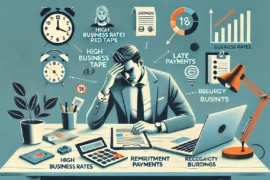The statute giving effect to the 3pm English football television broadcast blackout in the United Kingdom is long in the tooth. It’s time to do away with it!
I lived in South Africa for a decade and was amazed by the amount of English football shown on television in that country. It was like discovering an abundance of much-loved fresh UK farm produce in South African supermarkets, none of it available back home in UK stores.
Interrogating the premise
The 3pm football broadcast restriction has been in existence for over five decades, during which time it’s rationale has hardly been seriously questioned. The face value argument for the blackout is persuasive, commonsensical and almost unimpeachable. The claim that televising football matches has an adverse impact on attendances at stadiums and therefore hinders the growth of the game, especially in the lower tiers, is accepted as self-evident and accorded the status of a truism.
Could it be that the correlation between attendances at stadiums and live football broadcasting is overstated?
I would like to see a groundswell of opinions interrogating the premise for the blackout regime and ultimately agitating for the repeal of the governing statute.
I have seen references to studies in other European leagues where no such law exists. The findings show that live television broadcast of matches in those countries has not had any negative impact on the development of the game at all levels.
So, on what basis does English football persist with its sense of exceptional ism?
Where is the research?
I have been looking for reports whose findings vindicate the decision to impose the broadcasting ban, concrete findings supporting the rationale. I’m yet to find a study with compelling evidence to support the thinking that deprivation of televised football leads to more bodies on the turnstiles on match-day. Or vice-versa – that more football on television means fans will stop going to stadiums.
Has anyone conducted a study, even a simple poll with a representative sample, on whether supporters of teams in the lower tiers of English football would rather watch Premier League matches live on TV than go to the stadium to cheer on their team? Or is it just assumed fans would rather watch a more superior product, the 3pm Manchester derby on TV for example, than go and watch their teams play?
It’s not clear how the blackout has contributed to the fan culture in English football and whether the prevailing culture would have been different without it.
The advocates for the blackout must be careful not to claim easy victories. In the absence of incontrovertible research findings, the claim attributing healthy match-day attendances at stadiums to the broadcast blackout is at best an erroneous/opportunistic conclusion. It is a nice sounding theory that remains largely untested.
‘Plastic’ versus real fans
I wonder how many from the ranks of real dyed-in-the-wool fans out there would rather watch their team on TV than go to the stadium. Admittedly, watching on TV has its benefits; comfort of one’s home or local bar, the benefit of replays or even rewinding to a piece of action in the passage of play to settle an argument with fellow viewers over a contentious refereeing decision, etc.
The atmosphere at the stadium is unique and can’t be replicated anywhere, especially on TV. That is why fans go to stadiums – that and the fact that they are genuine supporters of their clubs.
Unjust statutes invite resistance
There are other contributing factors to low stadium attendances – prohibitive ticket prices, for example. For not too dissimilar reasons people also turn to illegal streaming of matches, because it’s cheaper than both official broadcaster subscriptions and the price of match-day tickets.
Illegal streaming of matches is on the rise because the product offered is much sought after but inaccessible to many. Those with the broadcast rights have priced out many.
Now, there is no excuse for breaking the law, but unpopular statutes imposing seemingly unjust sanctions often lend themselves to “sanctions busting.”
For facts, less conjecture
It must be asked whether there is a credible correlation between declining crowds and the amount of football on television? Could it be that dwindling crowds are a function of other factors but erroneously attributed to ease of access to matches on television?
Answers to these questions must be backed by research findings, not “commonsensical” arguments.
The decision to persist with the broadcast blackout must at least be supported by definitive research findings, not conjecture.
If anyone knows where I can find research reports informing the continued blackout, please cure my ignorance by pointing me to the documents. My contact details are below this article.
Much obliged.






